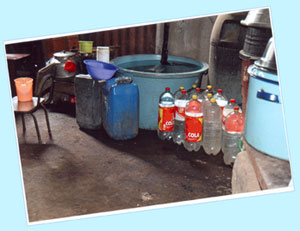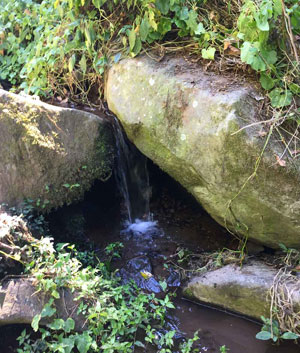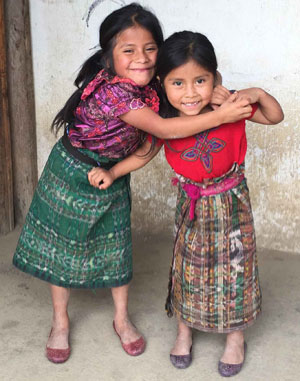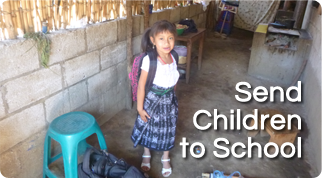 PO Box 263
PO Box 263Bettendorf IA 52722
Water Relief
Bringing Water to Mountain Villages
Meet: 3,000 people in 4 mountain villages...
of Panyebar, Chucamac, Panacal 1 and Panacal 2, each about an hour's hike from San Juan La Laguna, Solola, Guatemala.
 No running water
No running water
These residents have spent their lives without running water. During the rainy season, they capture water from roofs and by hanging 3-liter pop bottles in trees. During the dry season, people walk 11 kilometers (6.8 miles) to a small river to collect water. A local water committee, formed to address this problem, contacted Engineers Without Borders at the University of Pennsylvania for help.
Land purchase necessary
Engineers Without Borders and local municipalities met in April 2018 and agreed to design and build a water supply system contingent on communities purchasing land with a water source. After village meetings, the water committee gained approval to purchase land with three small rivers and a spring. To fund the project, every man, woman and child was mandated to donate $6.50 before a loan came due in August 2018. The poverty level in the area made collection impossible, endangering the project.
 Opportunity to help
Opportunity to help
How could the communities purchase this land? Centro Maya Project saw an opportunity to invest in the project with funds from two gifts. Centro Maya Project had been awarded a generous grant from Adelphia Foundation to bring and store water for the mountain villages. Available funds were nearly doubled with the $5,000 gift from an anonymous donor which had been earmarked for a special project. In the summer of 2018, hearing that the water project could fail because of an inability to pay the land loan, Centro Maya Project stepped up.
<<<< insert Waterfall-Centro-Maya-Project.jpg >>>>
Residents support land purchase
Centro Maya Project asked that 50 percent of voting age adults approve the conditions of the land purchase, including the condition that local residents maintain the water system and not pollute the water source. At meetings to outline the conditions, 450 people agreed. The water committee went door to door to collect signatures and thumbprints of hundreds more, collecting 10 pages of signatures. An elderly woman in one village told Centro Maya Project director, Jeanne Nakamaru, “I have waited my whole life for this. It's more than a dream. It's a prayer. I've been praying to God for my whole life for this.”


Work begins
A first task to remove boulders to expose springs began in January 2019. New springs are being discovered. The completion of this project will bring water, a basic human right, to these villages through the partnership of seven organizations: the four villages, Engineers Without Borders, Adelphia Foundation and Centro Maya Project.


